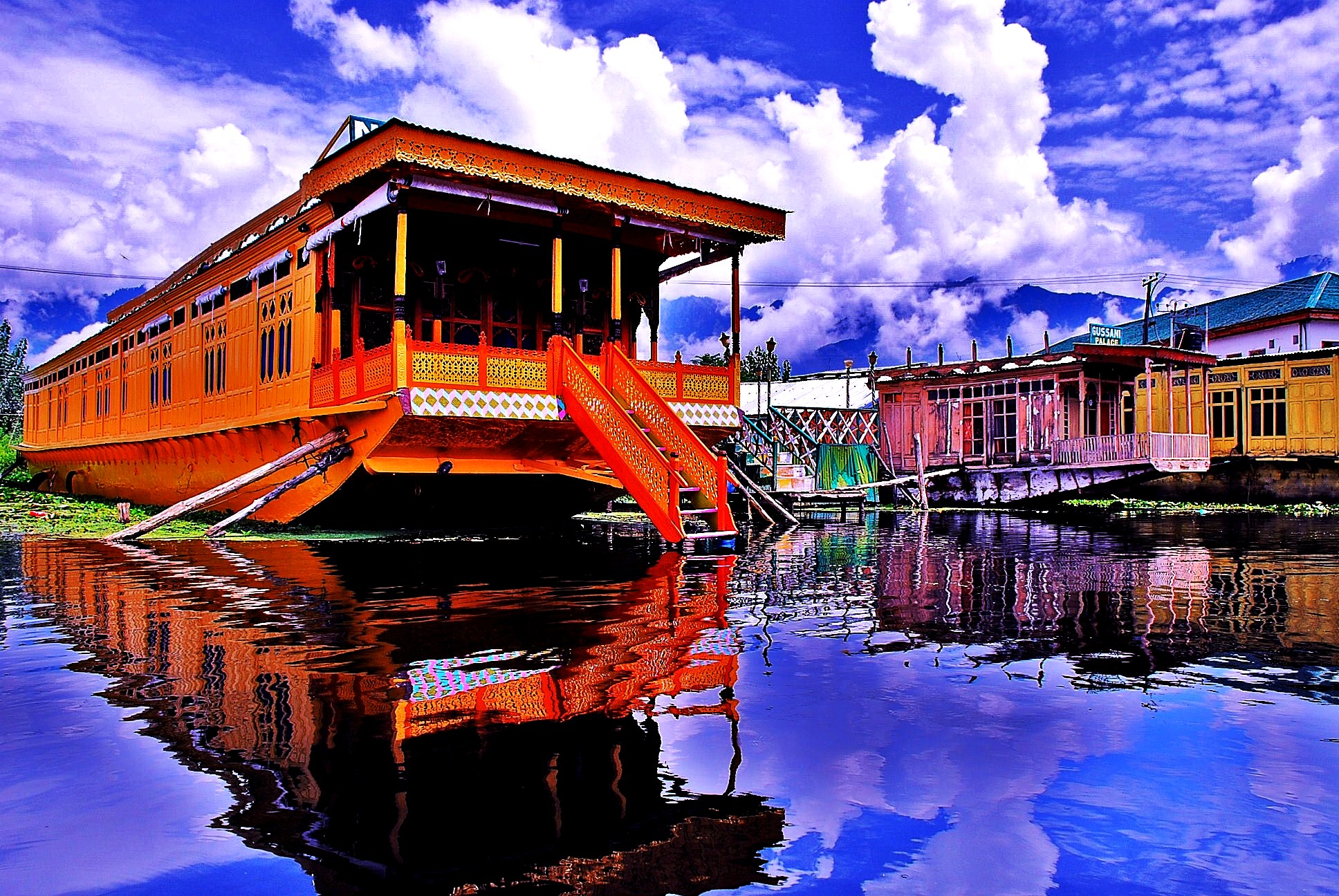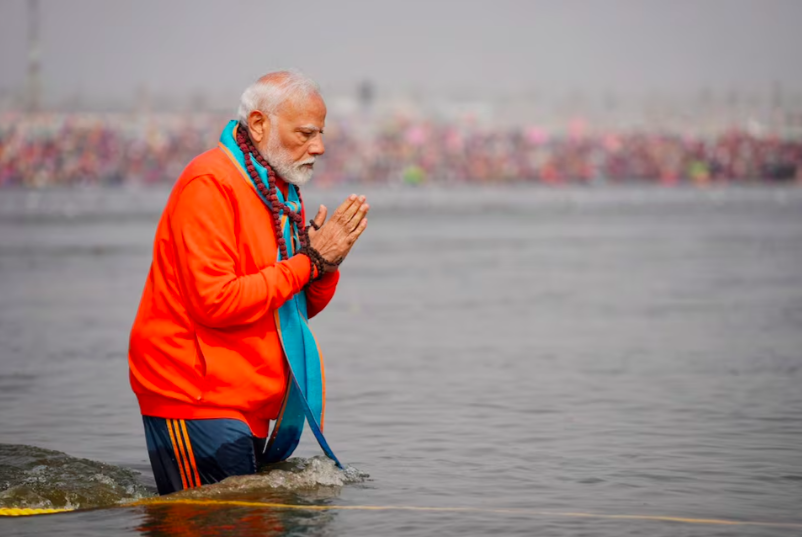The Kashmir Concert and the Harud Literature Festival: Where is the win and where is the loss?
Basharat Ali
In Kashmir use of the word ‘peace’ can be very dicey. The word ‘apolitical’ can meet the similar fate. Here you have to watch your words, read between the lines you write and pre-empt the response of your readers. Same holds true about what you speak. You can be caught on wrong foot anytime you utter a word that hits ears engineered over the years to hear-out the hidden meanings. Sometimes the response is just stupid exaggeration. And yes sometimes we choose to ignore.
Harud Literature festival succumbed to the boycott of a vocal minority. Now that is a thing from past but certainly relevant today. The use of word ‘apolitical’ clarifying the stance of organizers drove attention of some writers and journalists who questioned the motives behind the festival. Apprehensive about the message it may generate, the festival came under severe criticism leading to its cancellation.
 Organisers of Kashmir Concert called Ehsaas-e-Kashmir, the German Embassy, have dared to walk an extra mile. “This is not a ‘peace concert’”, said the German Ambassador Micheal Steiner in an interview to a local newspaper adding that “this is purely a cultural event”. While Harud promised a space to local writers writing in different languages, Kashmir Concert is only about Zubin Mehta playing orchestra which is no way near to Kashmir or its culture to be specific. New York Times India ink reported that “The German Embassy in New Delhi is organizing the concert in Srinagar with support from the local and federal Indian Government. Around 1500 people will participate in the concert where Mr. Mehta and the Bavarian State Orchestra will play Beethovan, Haydn and Tchaikovsky”.
Organisers of Kashmir Concert called Ehsaas-e-Kashmir, the German Embassy, have dared to walk an extra mile. “This is not a ‘peace concert’”, said the German Ambassador Micheal Steiner in an interview to a local newspaper adding that “this is purely a cultural event”. While Harud promised a space to local writers writing in different languages, Kashmir Concert is only about Zubin Mehta playing orchestra which is no way near to Kashmir or its culture to be specific. New York Times India ink reported that “The German Embassy in New Delhi is organizing the concert in Srinagar with support from the local and federal Indian Government. Around 1500 people will participate in the concert where Mr. Mehta and the Bavarian State Orchestra will play Beethovan, Haydn and Tchaikovsky”.
According to the Ambassador “the event is completely apolitical” further adding that “the state is doing its share”. The sponsorship for the event therefore can be linked to state government and government of India doing so in collaboration with German Embassy. Harud on the other hand was ‘apolitical’ with ‘corporate’ sponsorships.
Zubin Mehta, music Director for life of Israel Philharmonic Orchestra, has discovered a sudden love for Kashmir. He went on to say that he will “cancel every appointment” if he were given a chance to play in Kashmir, a place which has gone through “troubled times”.
Germany, where Zubin Mehta’s autobiography Die Partitur meines Leben: Erinnerungen (The Score of my Life: Memories) was published in 2006-the same year it was published in Israel too- also has shown keen interest in Kashmir very recently. Earlier in July Ambassador Steiner was at Kashmir University where he said, “Germany concentrates on helping Kashmiris to prosper” and he also invited “students to pursue career for higher studies in Germany”.
Both Zubin Mehta and Germany have histories which are questionable in the context that they are collaborating and coming to a conflict zone like Kashmir. The apprehensions against the concert are therefore genuine. In case of Harud Literature festival, those who boycotted it had attended similar literary festivals like the Jaipur Literature festival. Some of them even attended the 2012 Goa Literature festival which was sponsored by the Jammu and Kashmir government and where Omar Abdulllah was the Chief Guest.
Syed Ali Shah Geelani appealed to the German Ambassador to review the decision of the proposed Kashmir Concert. However, he did not comment on the issue of Harud literature festival. A civil society group from Kashmir has reportedly written to the German Embassy to call off the event. Majority of Kashmir’s civil society had vocally supported the literature festival but they simply could not overcome the influential minority. It is an encouraging sign that the academia, civil society and student community are united in protest against the proposed Concert.
Reports suggest that the concert is on despite the growing opposition. The organizers and their facilitators are so far on with the preparations. It appears that the show may go on as proposed. If that happens, it will be a loss. It will be a representation of a “consortium of forces” giving no respect to the people the concert is purportedly meant for. It will be a display of power.
There are people in Kashmir, mainly those associated with music, who want the show must go on. There are also people, though numbered, who don’t take into consideration the power dynamics of such collaborations, who will want to relish the musical gala. They ought to be talked to and encouraged, with unconditional support, to develop idea of a concert that has an element of Kashmir in it. Let them organize a concert that celebrates traditional Kashmiri and Indian folk music.
In Harud, personally speaking, we suffered a loss by not having the festival. In Kashmir Concert there will be a loss in having the show. The loss cannot be evaluated and presented as numbers. It is value based and constitutes the philosophical questions (morality comes later). The fact is that loss is a loss. In Harud we lost an opportunity; in Kashmir Concert we will lose an identity. The loss in Harud meant that we continue to repeat same stories time and again in our forms of writing and anthologies and not coming up with new techniques. The loss in Kashmir Concert will mean further damage to our traditional music. A music concert cannot be and can never be compared to the human losses Kashmir has suffered. It can never be an anecdote of a history that is conflicting and colored in red.
Come September 7 and Kashmir will know.
(Author is studying Conflict Analysis and Peace Building at Nelson Mandela Centre for Peace and Conflict Resolution, Jamia Millia Islamia New Delhi and can be reached at darbasharat@gmail.com)









